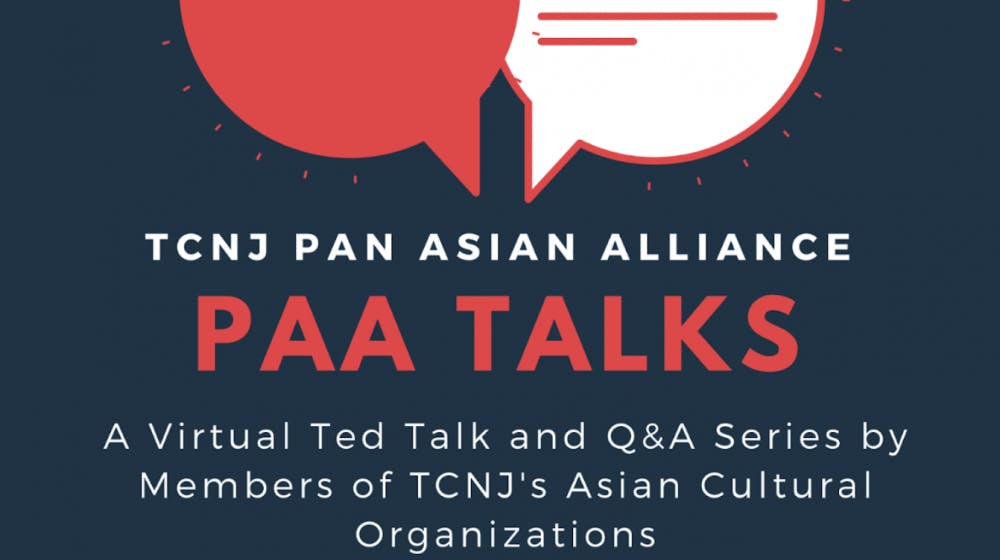By Kevin Hornibrook
Staff Writer
The Pan Asian Alliance held the first “PAA Talks” discussion on April 22 for students from different Asian cultural organizations to share their personal experiences.
The event was created to allow students an opportunity to tell their stories and raise awareness in response to anti-AAPI (Asian-American and Pacific Islander) rhetoric and hate crimes.
Gabriella Son, junior elementary education and English dual major, organized and co-moderated the talk with junior psychology major Crystal Tran. The structure was based on the popular TED Talk format. Five speakers gave presentations and answered questions from any of the over 200 attendees.

After a Student Government forum earlier this month, President Kathryn Foster reached out to Son, who decided to put together a new event.
“We wanted to take advantage of this moment, right here, right now,” she said, noting the recent increase in attention for AAPI issues.
First to present was junior special education major Sayon Park, who told the audience about her struggle with beauty standards. She started to physically alter her eyelids to appeal to western beauty standards.
“Throughout a lot of my experiences growing up, things have led me to hate how my eyes naturally were,” Park said.
Park was followed by sophomore finance major Sharon Diao, another student that dealt with different expectations for her appearance. She shared one story from a high school prom when she felt she looked beautiful and was enjoying her day, only to be told by a peer that she looked “so pretty, for an Asian.”
Junior biology major Alekhya Madiraju followed with several small anecdotes of microaggressions she received throughout her childhood. She often felt ostracized for displaying her Indian heritage; her bindi would be stared at while Christian students with ash on their foreheads would not be bothered.
“It’s so incredibly exhausting to have to constantly prove that we’re Americans too,” Madiraju said.
The fourth speaker was senior mathematics major Addy Wong, who shared his life-long journey to feel like he belonged anywhere. He had to learn English, change his diet and make jokes at his expense just to feel like he fit in before learning to accept his uniqueness.
His personal story and use of graphics sparked a swarm of positivity both in the Zoom chat and in the Q&A responses, with other attendees sharing memories of acceptance.
Junior psychology major Brandon Hoang, the final speaker, titled his presentation “The Oxymoron of Asian Male Identity.” He detailed how stereotypes impacted his masculinity and self-worth and how he constantly had to change himself to please others.
Each speaker turned their presentation into something positive, usually focusing on accepting and embracing their identity.
This event stood out to Son and Tran due to the attention it received from the community. They’ve noticed a problem at the College where their organizations struggle to receive the financial and faculty backing necessary to make a significant impact.
“When it comes to PAA orgs, we struggle to get $10,000 for a speaker while they’re throwing around like half a million so we can get Bill Nye or something,” said Tran. “Don’t get me wrong, I love Bill Nye, but in terms of these really important conversations we need to have, it’s really hard for our organizations to get backing to hold events that could hold the attention of the entire campus.”
They were particularly grateful for Dr. Yifeng Hu, Department Chair of the Communication Studies Department, Dr. Hue-Sun Ahn, Assistant Director of Mental Health Services, and President Foster for their help with the event.
When it comes to combating anti-Asian racism and biases both at the College and across the country, Son and Tran felt the most important step is increasing representation and visibility. While they find legislation like the Covid-19 Hate Crimes Act helpful, more must be done to change how people think.
Son plans to hold a similar event again in the future.
“Holding an event reminiscent of this one, we all think it’s really important to just have that opportunity for people to speak out and use their voices,” Tran said.







